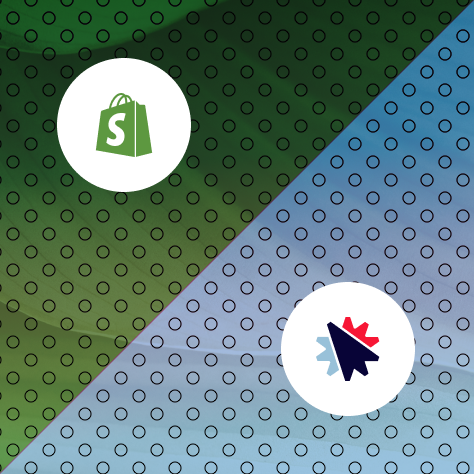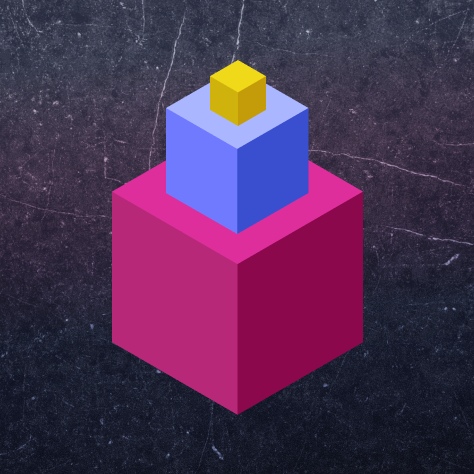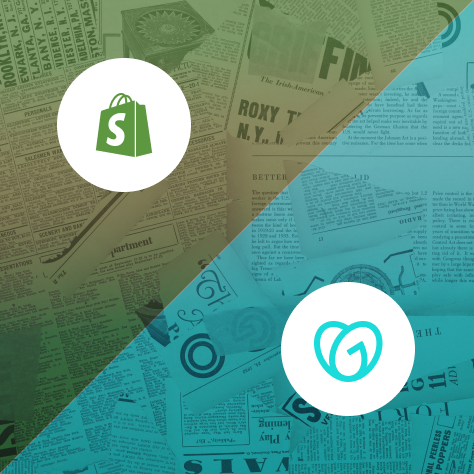Shopify vs ClickFunnels: Choosing the Right Platform for Your Business Model
Shopify and ClickFunnels are often compared by entrepreneurs and online business owners, but they serve different purposes.
One platform is built for managing an online store with many products. The other is made to guide visitors through a step-by-step process to make a purchase or sign up.
Understanding how each platform works can help clarify why they are used differently, even though both support online selling.
What Are Shopify And ClickFunnels
ClickFunnels is a sales funnel builder created in 2014 by direct marketing virutoso Russel Brunson.
It focuses on helping users design funnels—structured pages that guide visitors toward specific actions like buying a product or signing up for a service. ClickFunnels achieves 3-7% average conversion rates compared to Shopify's 1.4%, with top-performing ClickFunnels reaching an impressive 11.45% conversion rate.
The main difference? Shopify centers on running a complete store, while ClickFunnels focuses on creating conversion paths for specific offers.
Core Differences In Features And Focus
These platforms were built with different goals in mind. Shopify helps merchants run full online stores with product catalogs and fulfillment tools. ClickFunnels guides users through a series of steps to convert them into customers.
Storefront Versus Funnel Approach
Shopify uses a traditional store structure where customers can browse freely. ClickFunnels uses a fixed path that leads customers through specific steps.
- Customer Movement: In Shopify, visitors can explore multiple products and categories at their own pace. In ClickFunnels, they follow a predetermined path with limited navigation options.
- Shopping Experience: Shopify lets customers compare products and add multiple items to their cart. ClickFunnels typically presents one offer at a time with a focus on immediate action.
- Brand Building: Shopify supports content pages, blogs, and repeat purchases. ClickFunnels prioritizes converting first-time visitors quickly.
Physical And Digital Products
Both platforms can sell physical and digital products, but they handle them differently.
Shopify includes built-in tools for tracking inventory, calculating shipping rates, and delivering digital files. It works well for businesses with multiple products or product variations.
ClickFunnels works best for selling individual digital products, courses, or services. Its structure focuses on selling one thing well rather than managing a catalog of items.
Payment Processing
Shopify offers its own payment system (Shopify Payments) plus support for over 100 payment gateways. Using Shopify Payments removes extra transaction fees that apply when using third-party processors.
ClickFunnels connects with fewer payment options, mainly Stripe and PayPal. It doesn't have its own payment processor, so businesses always pay the standard fees from these services.
Many businesses explore ClickFunnel's Shopify integration options to combine ClickFunnels' marketing tools with Shopify's robust payment and order management.
Store Management And Daily Operations
Running a business on these platforms involves different workflows and tools.
Dashboard And Usability
Shopify's dashboard organizes everything around products, orders, and customers. Setting up requires choosing a theme, adding products, and configuring shipping and payment options. The learning curve can be steeper for complete beginners.
ClickFunnels organizes everything around funnels and pages. Its drag-and-drop editor makes building pages simple, but the focus is narrower. You'll spend most of your time designing funnel steps and testing conversion rates.
- Technical Skills Required:
- Shopify: Basic computer skills for standard setup. Some coding helpful for customization.
- ClickFunnels: No coding needed. Marketing knowledge more valuable than technical skills.
Inventory And Order Fulfillment
This is where the platforms differ significantly.
Shopify includes comprehensive inventory tools that track stock levels, alert you when items run low, and sync across sales channels. It connects directly with shipping carriers for real-time rates and label printing.
ClickFunnels has minimal inventory features. It can track basic sales counts but lacks tools for managing stock levels, variants, or shipping logistics. For physical products, many ClickFunnels and Shopify users connect the platforms to use Shopify's fulfillment capabilities.
Funnel Creation And Conversion Tools
A sales funnel guides visitors through a series of steps toward a purchase. Think of it like a digital salesperson walking someone through a presentation that ends with an offer.
ClickFunnels was built specifically for creating these paths. It includes templates for different funnel types and tools to optimize each step.
Shopify wasn't designed for funnel creation, though it can be adapted using apps or custom development. This fundamental difference explains why some businesses use both platforms together.
Building A Basic Funnel
On ClickFunnels, creating a funnel is straightforward:
- Choose a funnel type (sales, lead capture, webinar)
- Select a template or start from scratch
- Customize each page with the drag-and-drop editor
- Connect your payment processor
- Publish and start sending traffic
On Shopify, the process requires more steps:
- Install funnel-building apps from the Shopify App Store
- Create landing pages using the app's tools
- Set up product pages and checkout flows
- Configure the connections between pages
- Test the complete flow to ensure it works properly
This difference in process highlights why clickfunnel vs shopify comparisons often come down to whether your business needs a dedicated funnel tool or a complete ecommerce system.
Adding Upsells Or Downsells
Upsells offer customers additional or premium products after they decide to buy. Downsells provide alternative, often lower-priced options if they decline the upsell.
ClickFunnels handles these naturally with dedicated page types and built-in conditions. You can create paths that show different offers based on customer actions.
Shopify requires apps for similar functionality. Several ClickFunnels for Shopify integrations exist specifically to add funnel features to Shopify stores.
Pricing And Cost Considerations
The total cost of running your business includes monthly fees, transaction costs, and any additional tools you need.
Monthly Plans And Transaction Fees
Shopify's basic plans range from $39 to $399 per month (Basic to Advanced), with Shopify Plus starting at $2,300. All plans include core store features, with higher tiers adding advanced reporting and lower credit card rates.
ClickFunnels starts at $97 monthly for the basic plan and goes up to $297 for the complete suite. The entry point on basic plans is higher than Shopify, reflecting its specialized nature.
Both platforms charge transaction fees on sales:
- Shopify: 2.4-2.9% + 30¢ when using Shopify Payments (rates improve with higher plans)
- ClickFunnels: Relies on Stripe/PayPal fees (typically 2.9% + 30¢)
When comparing Shopify vs ClickFunnels, remember that Shopify adds extra transaction fees (0.5-2%) when using external payment gateways.
Additional Tools And Extensions
Most businesses need extra functionality beyond what's included in the base plans.
Common Shopify Add-ons:
- Email marketing apps (starting $10-60+/month)
- Upsell and cross-sell tools ($20-50/month)
- Advanced analytics ($20-100/month)
Common ClickFunnels Add-ons:
- Email service providers ($15-150/month)
- Membership site tools (included in higher plans)
- Additional domains ($20/year each)
These costs add up quickly and should factor into your platform decision.
Using ClickFunnels With Shopify Together
Some businesses use both platforms rather than choosing between them. This approach uses each tool for its strengths: ClickFunnels for marketing and Shopify for store management.
In this setup, ClickFunnels handles the initial customer journey through sales funnels, while Shopify manages products, orders, and fulfillment. Data flows between the systems, usually through third-party connection tools.
Setting up Clickfunnels with Shopify integration typically involves:
- Creating products in both systems with matching information
- Using integration tools like Zapier to connect the platforms
- Setting up automation to pass order details from ClickFunnels to Shopify
- Testing the full process to ensure data moves correctly
This approach works well for businesses that need strong marketing funnels and robust ecommerce capabilities, though it adds complexity and cost.
Which Platform Suits Different Business Models
Your business type largely determines which platform will work better for you.
Single Product Businesses
If you sell just one product or a small set of related items, ClickFunnels often works better. Its focused approach eliminates distractions and guides customers directly to purchase.
Businesses selling single products through ClickFunnels' Shopify combinations often use ClickFunnels for the sales process and Shopify for order management.
Large Catalog Stores
For businesses with many products, Shopify is the clear choice. It includes tools for organizing products into collections, filtering by attributes, and managing large inventories.
ClickFunnels becomes unwieldy with large catalogs since each product typically needs its own funnel. The platform lacks category pages, search functions, and other features that help customers browse many products.
Digital Product Businesses
ClickFunnels includes built-in tools for delivering digital products, online courses, and membership content. These features make it popular for:
- Online courses and educational content
- Coaching and consulting services
- Digital downloads like ebooks and templates
Shopify can also sell digital products but requires apps for features like content dripping or member areas.
Final Thoughts On Finding The Right Platform
The choice between Shopify and ClickFunnels comes down to your business model and primary goals.
Choose Shopify if you:
- Sell multiple products that customers might browse
- Need inventory and shipping management
- Want to build a long-term brand with repeat customers
Choose ClickFunnels if you:
- Focus on selling one main product or service
- Prioritize conversion optimization over browsing
- Sell digital products or online courses
Some businesses find that combining clickfunnels to shopify gives them the best of both worlds—powerful marketing funnels with solid ecommerce infrastructure.
For Shopify store owners looking to improve conversions without adding complex systems, Platter offers tools that enhance your storefront's performance. Our checkout extensions and customizable theme help optimize the customer journey within Shopify itself.
Book a demo to see how Platter can help your Shopify store convert better without needing multiple platforms.
FAQs About Shopify vs ClickFunnels
Which platform offers better SEO capabilities for organic traffic?
Shopify provides more comprehensive SEO tools including customizable meta data, blog functionality, and site architecture that search engines prefer, while ClickFunnels focuses primarily on paid traffic strategies rather than organic search optimization.
Can ClickFunnels handle physical product sales with inventory tracking?
ClickFunnels can process physical product sales but lacks Shopify's built-in inventory management, shipping integrations, and fulfillment tools that businesses selling multiple physical products need for efficient operations.
How does Platter enhance Shopify storefronts compared to adding ClickFunnels?
Platter improves Shopify stores with conversion-focused design elements and checkout optimizations that work within Shopify's native environment, eliminating the need for external platforms or complex integrations.
What challenges might I face when migrating between these platforms?
Migrating between platforms requires transferring product data, customer information, and order history, with Shopify offering more comprehensive export tools while ClickFunnels has more limited data portability options.






-min.webp)




.webp)


















.svg)


.svg)











.png)

%201.png)



.svg)
.svg)
